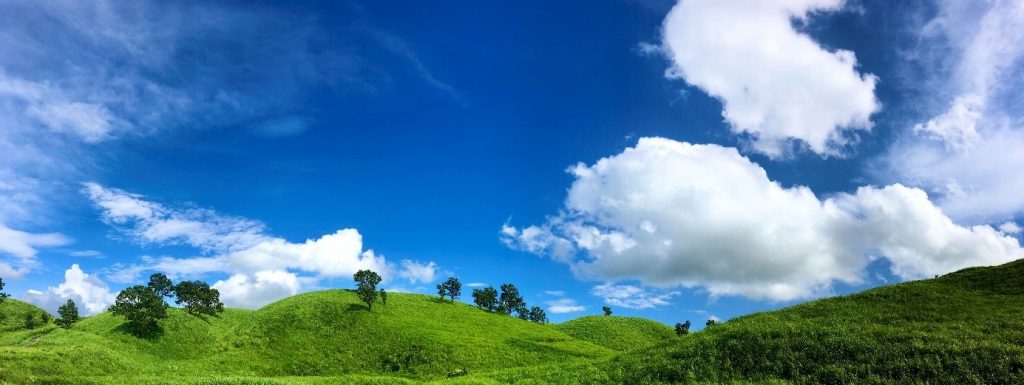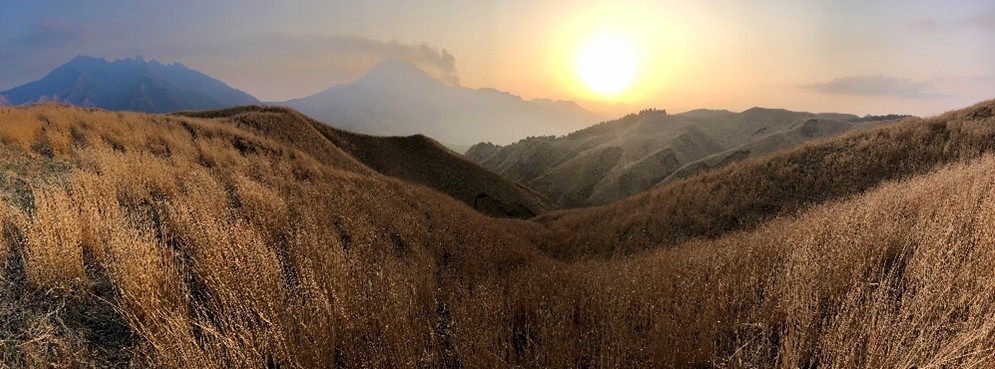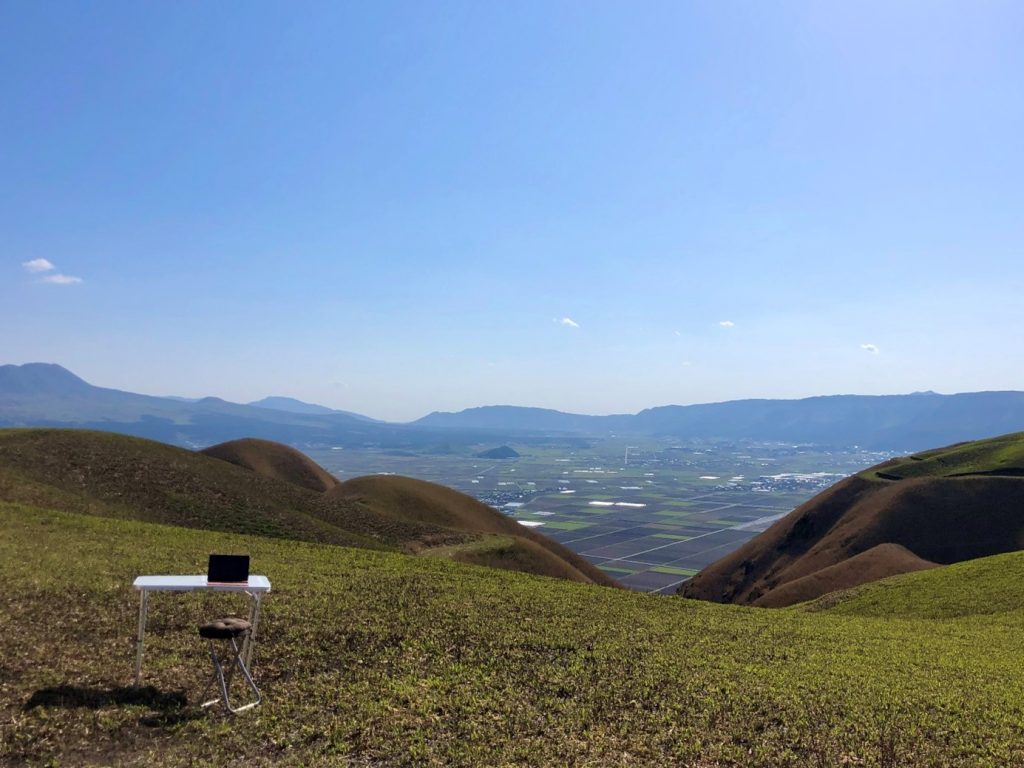by Johannes Wilhelm
It is the end of February 2020. From my wooden house at the southern foot of the inner volcanic cone of the huge caldera of Aso (Kumamoto Prefecture), I am heading for Tokyo, where I will give a lecture on the “Cowboys of Aso”. Before departure, I check the latest mails. The organizer mails that in view of the beginning pandemic and in agreement with the Japanese authorities all events at the institute have to be cancelled at short notice. Well! I stoically took note of the decision, but on the plane the sense of my outward and return flight seemed quite absurd. After a few days, I was back at the volcano, while at the first shopping in the only supermarket of Minamiaso, surprisingly, neither official trash bags, nor toilet paper was to be found: everything bought empty. I asked my relatives and friends in Tokyo and elsewhere if this was also the case there, but they were all surprised, because everything was still available. The following week, however, some of them came forward and told me that a run on toilet paper had now also begun in the other major cities of Japan. Then – about two weeks after Aso – I read in the foreign media that, in addition to toilet paper, noodles were also becoming scarce. At that time I remembered the lyrics of a song by the German band Tocotronic about the new strangeness, which opened up to me like the discovery of a new semiotic continent … https://www.youtube.com/watch?v=ZweXZqoV7nc&ab_channel=OMhA

Copyright © Johannes Wilhelm 2020
Minamiaso thus became a trendsetter in terms of social phenomena in the pandemic, at least as far as toilet paper was concerned. And the trash bag shortage soon died down, too. Later, other oddities in the countryside came to light, such as alcohol dealers who out of the blue marketed their whiskey or shochū as disinfectants, or some greenies trying to sell overpriced masks of dubious origin at moon prices, but I want to focus on other things in this text.

Copyright © Johannes Wilhelm 2020

Copyright © Johannes Wilhelm 2020
Many people with an affinity for Japan are probably aware that the Aso region is one of the main tourist attractions on Kyūshū Island. It occupies a correspondingly prominent role in local economic life, although in my opinion the main pillars of the economy are the welfare sector (keyword: aging) in addition to agricultural production. An important fact is that the working life of many people in Aso consists of several parts. For example, many rely on their land holdings to pursue a primary activity such as cattle raising or rice cultivation, while also pursuing a few side jobs, such as cleaning public baths in the evenings or producing handicrafts such as embroidery, woodwork or pottery offered at michi no eki or other outlets. Full-time jobs are only those in the administration of the city hall or government offices and schools as well as full-time positions in production facilities in the industry. The structure of the tourism sector is similarly diverse. The domestic tourists, but mainly those visiting from abroad, usually only see the hotels, restaurants or inns, i.e. the superficial manifestations of the industry with their many employees, but behind them there is a whole range of sub-enterprises, such as dry cleaners for bed linen.

Copyright © Johannes Wilhelm 2020
Just a couple of weeks before the so-called “Golden Week”, it was decided that all public baths and the onsen thermal baths, which are extremely popular among tourists, would be closed for an indefinite period. Lodgings and restaurants were also ordered by local authorities to take a rest period. When I went to the nearest dry cleaning business in May to prepare my winter clothes for proper storage over the humid summer, I was told that from now on the business would only run on Saturdays every fortnight and only a quarter of the staff – mainly full-time employees – would still be present, as there was no demand in the light of the closed lodges.
… to be continued …
ACHTUNG: Daten nach YouTube werden erst beim Abspielen des Videos übertragen.
Johannes Wilhelm is an independent researcher and is affiliated with Vienna University. His main studies focus on the relationship between nature and society. His interests include fisheries, pastures in mountainous regions, and rural areas as much as general phenomena in society such as radicalism, migration and social vulnerability.
